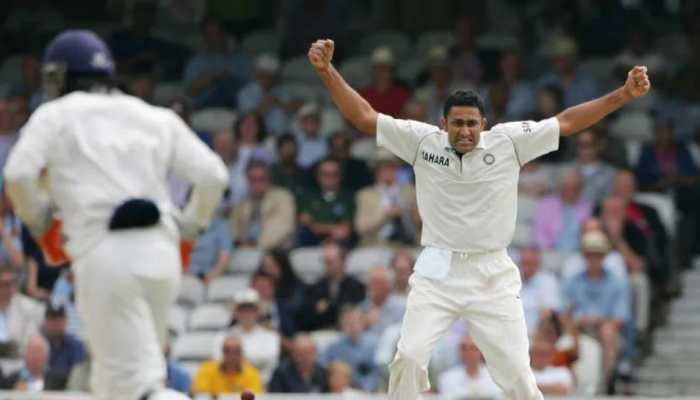Fight against terror is not a fight against Islam: PM Narendra Modi
The fight against terrorism and radicalisation is not against any religion, it is against the mindset that misguides youth, the PM said on Thursday.
Trending Photos
New Delhi: Prime Minister Narendra Modi and visiting Jordan King Abdullah II on Thursday agreed that the fight against terrorism is not a fight against Islam or any other religion, but against those who misguide the innocent youth.
The two leaders also agreed that both India and Jordan shared a responsibility to bring peace in the world.
''The fight against terrorism and radicalisation not against any religion, it is against the mindset that misguides youth,'' PM Modi said.
During his speech, the PM stated that the youths should associate themselves with humanitarian aspects of Islam and also be able to use modern science.
''All faiths promote human values. Therefore, our youth should associate themselves with the humanitarian aspects of Islam and should also able to use modern technology," the PM said.
Every religion promotes human values, the Prime Minister said in his address at a conference on 'Islamic Heritage: Promoting Understanding & Moderation', where Jordan's King Abdullah II was also present.
India, the Prime Minister added, had been a "cradle of all major religions in the world".
Hailing Indian democracy as a celebration of age-old plurality, the PM said, ''India is the cradle of all major religions in the world.''
Speaking on his turn, Jordan King said, ''Too much of what is heard in news and what is seen about religion today is all about what separates people. Around the world, suspicions are inflamed by what different groups don't know about others. Such ideologies of hate distort the word of God to stir conflict.''
Endorsing PM Modi, King Abdullah said, ''Fight against terror is not fight between religions.''
''Islam is not about radicalisation, faith inspires both our countries,'' King Abdullah said adding, ''Humanity unites all religions.''
King Abdullah II of Jordan was earlier accorded a ceremonial reception at the Rashtrapati Bhawan in the national capital.
He was received by President Ram Nath Kovind and Prime Minister Narendra Modi upon his arrival.
"I am on my second official visit to India and I am truly honoured to be here," King Abdullah said here.
He also paid tribute to Mahatma Gandhi at Rajghat in Delhi.
King Abdullah II of Jordan paid tribute to Mahatma Gandhi at Rajghat in Delhi. pic.twitter.com/9Jz2hNxB2S — ANI (@ANI) March 1, 2018
King Abdullah, who arrived here on Tuesday for a three-day state visit, along with a business delegation, was received by Prime Minister Narendra Modi.
The Jordanian King's visit comes nearly three weeks after PM Modi travelled to Jordan as part of his trip to West Asia, including Palestine.
During the visit, the two sides are expected to sign MoUs/Agreements in diverse areas of bilateral cooperation.
External Affairs Minister Sushma Swaraj had on Wednesday called on King Abdullah and discussed with him ways to enhance bilateral ties in a range of sectors.
On the other hand, the Union Cabinet gave its nod to sign a host of pacts with Jordan, including cooperation in the field of health, manpower, customs and mining.
It approved signing a MoU with Jordan on cooperation and mutual administrative assistance in customs matters. This will help in the availability of relevant information for prevention and investigation of offences related to customs violation.
"The agreement is also expected to facilitate trade and ensure efficient clearance of goods traded between the countries," an official statement said.
The Union Cabinet, chaired by the Prime Minister, also gave its approval for a pact for cooperation between India and Jordan in the field of manpower.
The pact aims at enhancing collaboration between the two sides in promoting best practices in the administration of contractual employment, reflect the latest reforms in recruitment processes and enhance protection and welfare of Indian workers in Jordan.
"Collaboration between the two sides in use of online portal for recruitment of Indian manpower is expected to usher in greater transparency and curb malpractices in the recruitment process," the statement said.
The Cabinet also gave its approval for cooperation between the two countries in health and medical science and will cover areas like Universal Health Coverage (UHC), health system governance, services and information technology in health, among others.
The areas also include health research, national health statistics, health finance and economy, chronic disease control, tobacco control, diagnosis, treatment and medication in tuberculosis and regulation of pharmaceuticals and medical devices.
(With ANI inputs)
Stay informed on all the latest news, real-time breaking news updates, and follow all the important headlines in india news and world News on Zee News.
Live Tv







)
)
)
)
)
)
)
)
)
)
